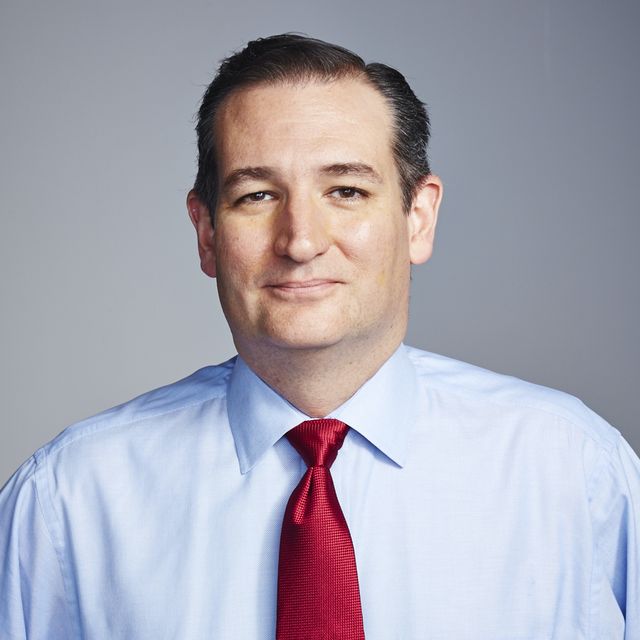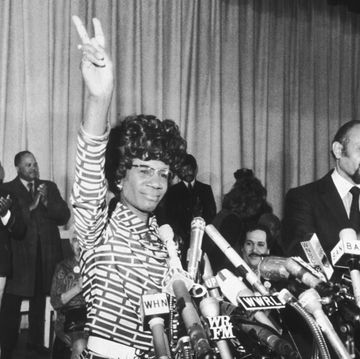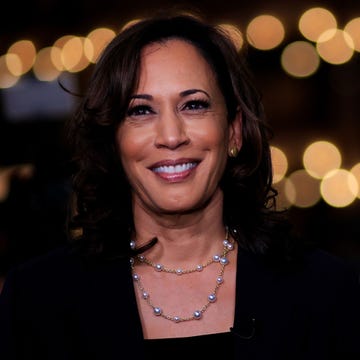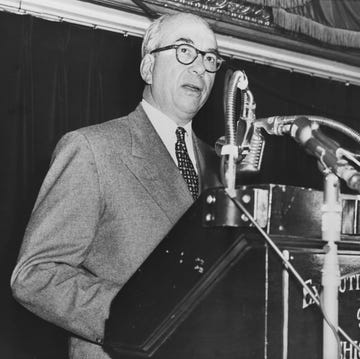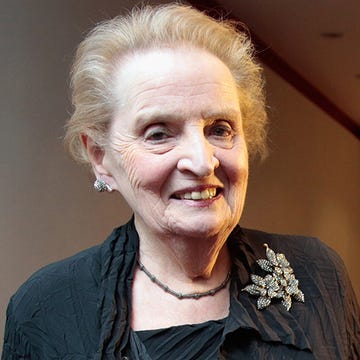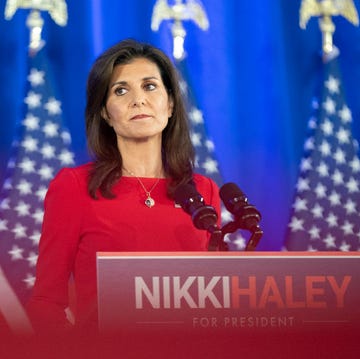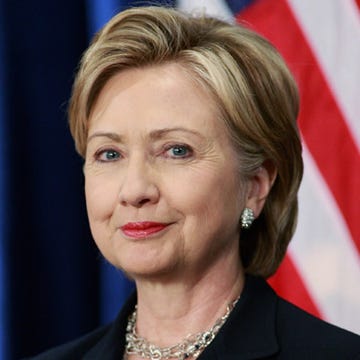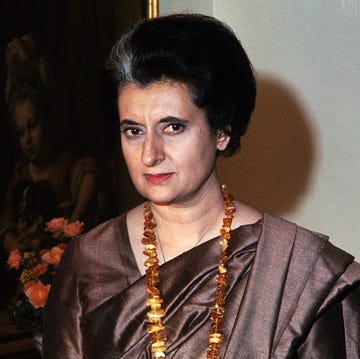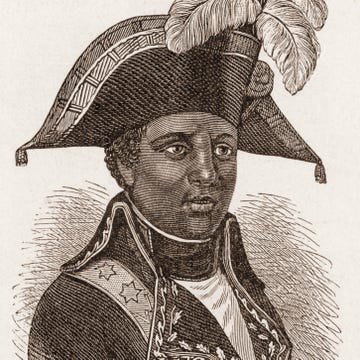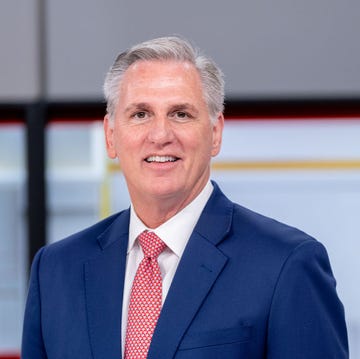(1970-)
Who Is Ted Cruz?
Conservative politician Ted Cruz grew up in Houston, Texas, earning his bachelor's at Princeton University and going on to Harvard Law School. Cruz served as an adviser on the 2000 presidential campaign of George W. Bush and became solicitor general of Texas in 2003. He won election to the U.S. Senate in 2012 with the support of the Tea Party and went on to orchestrate a governmental shutdown in opposition to Obamacare. After losing his bid for the 2016 Republican presidential nomination to Donald Trump, Cruz was re-elected to the Senate in 2018.
Early Life and Education
Rafael Edward Cruz was born on December 22, 1970, in Calgary, Canada, but mainly grew up in Houston, Texas. His father, Rafael, came to the United States from Cuba in the late 1950s. His mother, Eleanor, was born in the United States and met his father when she was a student at Rice University. Cruz's parents split up for a time, but they reunited after Rafael developed a newfound interest in religion.
Cruz demonstrated his gift for public speaking at an early age. He joined an after-school program run by the Free Enterprise Institute, which introduced young people to free-market economics. The institute had created a youth group that focused on the Constitution. Cruz joined the group, and he and his fellow Constitutional Corroborators gave speeches around Texas on related issues.
The valedictorian of his class at Houston's Second Baptist High School, Cruz went on to Princeton University. There he became an award-winning debater. He also found a mentor in professor Robert George, a well-known religious conservative.
After graduating from Princeton in 1992, Cruz continued his education at Harvard Law School. There he challenged the liberal ideals of lawyer Alan Dershowitz, one of his instructors. After law school, Cruz worked as a law clerk for several judges, including Supreme Court Justice William Rehnquist from 1996 to 1997.
Government Posts to U.S. Senate
Cruz worked as a lawyer for a few years before jumping into politics, eventually serving as a policy adviser to George W. Bush's 2000 presidential campaign. Cruz explained to The New Yorker, "I essentially had responsibility for all the policy that touched on law" during the campaign. He also acted on Bush's behalf during the fight for a recount of Florida's election results.
After a stint as associate deputy attorney general at the Department of Justice, Cruz became director of the Office of Policy Planning at the Federal Trade Commission in July 2001. His time at the FTC was marked by successful defeats of collective bargaining proposals between physicians and healthcare programs, as well as legislation that aimed to curb below-cost gasoline sales.
In 2003, Cruz became the solicitor general of Texas. He argued a total of eight cases before the U.S. Supreme Court during his five years in the post, his victories including a case from 2008 in which he advocated for the preservation of the death penalty for a Mexican citizen convicted of raping and murdering two teenage girls.
Cruz then returned to private practice briefly before launching his own campaign for the Senate. He initially appeared to be an underdog, taking on fellow Republican and Texas Lieutenant Governor David Dewhurst. But his ultra-conservatism won him the support of leading Tea Party figures like Sarah Palin and Rand Paul, who campaigned for him. Cruz came in second to Dewhurst in the first round of voting, but he won in the run-off election.
Government Shutdown
After taking office in 2013, Cruz made a name for himself with his speeches and tactics. He was instrumental in bringing about the government shutdown that year after his 21-hour speech against President Barack Obama's healthcare plan. Holding the Senate floor, Cruz tried to convince his colleagues to cut funding for the program. He also used his time to read a story to his daughters and share passages from one of his favorite books, Atlas Shrugged, by Ayn Rand.
Cruz's actions drew the ire of some of the more seasoned "establishment" Republicans. According to The Huffington Post, Senator John McCain said that Cruz, along with fellow ultraconservatives Rand Paul and Representative Justin Amash, were "wacko birds" who got the most media attention. "I think it can be harmful if there is a belief among the American people that those people are reflective of the views of the majority of Republicans," said McCain, adding, "They're not."
2016 Presidential Campaign
In 2014, Cruz renounced his dual Canadian citizenship, though his eligibility to run for president was not in jeopardy.
In March 2015, Cruz officially announced his candidacy for president over Twitter. He then appeared at Liberty University, a Christian college founded by Moral Majority leader Jerry Falwell, to rally the faithful to his side. "Today, roughly half of born-again Christians aren't voting," he said, according to CBS News. "Imagine instead millions of people of faith all across America coming out to the polls and voting our values." His words struck a chord with many on the religious right, and the day after his announcement his campaign brought in approximately $1 million in donations.
On social issues, Cruz is pro-life and has stated his belief in “marriage between a man and a woman.” He opposes abortion and same-sex marriage. "Instead of a federal government that works to undermine our values, imagine a federal government that works to defend the sanctity of human life, and to uphold the sacrament of marriage," he said in a speech announcing his run for president.
As the son of a Cuban immigrant, Cruz said he “celebrates legal immigration,” according to his official website. In 2014, Cruz proposed legislation to prevent President Obama from expanding amnesty, and he served as a vocal critic of the Obama administration’s immigration policies. As a 2016 presidential hopeful, he called for more “boots on the ground” to increase security at the border.
Cruz also favored abolishing the IRS and instituting a flat tax system. Regarding the issue of climate change, he acknowledged that climate change is real, though he also questioned the scientific evidence of its causes and impact as presented by the “global warming alarmists.”
The Texas senator scored an important victory in his pursuit of the presidency in February 2016 by edging out fellow Republican hopeful Donald Trump in the Iowa caucuses. With the field shrinking, he announced Carly Fiorina, the former Hewlitt-Packard CEO, as his vice-presidential running mate in April.
However, after losing the Indiana primary to Trump in May, Cruz suspended his campaign. "From the beginning, I have said that I will continue on as long as there is a viable path to victory," Cruz told his supporters. "Tonight, I am sorry to say, it appears that path has been closed."
Controversy at the Republican Convention
On July 20, 2016, Cruz delivered a controversial speech at the Republican National Convention in Cleveland, Ohio, one day after Trump officially won the party’s presidential nomination. Addressing the convention, Cruz congratulated Trump, but did not endorse him, drawing boos from the audience of delegates and chants of “Vote for Trump!” and “Go Home!”
“If you love our country, and love our children as much as you do, stand, and speak, and vote your conscience, vote for candidates up and down the ticket who you trust to defend our freedom, and to be faithful to the Constitution,” Cruz said, eliciting jeers and chants of “Endorse Trump!,” particularly from the delegation of Trump’s home state, New York.
The next day Cruz addressed delegates from his home state of Texas, many of whom were angry about his unwillingness to back Trump. “This isn't just a team sport," said Cruz, defending his position. "We either stand for shared principles or we’re not worth anything.”
On September 23, 2016, Cruz finally endorsed his former rival just days before Trump’s first presidential debate with his Democratic opponent Hillary Clinton. In a Facebook post, Cruz wrote: “After many months of careful consideration, of prayer and searching my own conscience, I have decided that on Election Day, I will vote for the Republican nominee, Donald Trump.”
In his long explanation supporting his endorsement, Cruz wrote: “Our country is in crisis. Hillary Clinton is manifestly unfit to be president, and her policies would harm millions of Americans. And Donald Trump is the only thing standing in her way.”
Trump responded in a statement to CNN: ”I am greatly honored by the endorsement of Senator Cruz," he said. "We have fought the battle and he was a tough and brilliant opponent. I look forward to working with him for many years to come in order to make America great again."
2018 Reelection
After ending his quest for the White House, Cruz resumed his Senate duties, where he has served on the Committee on Foreign Relations and chaired the Subcommittee on the Constitution and the Subcommittee on Aviation and Space.
In 2018, Cruz faced a surprising Senate reelection battle from Democratic Congressman Beto O'Rourke, with many polls showing the incumbent holding a too-close-for-comfort lead. As a result, the Republican establishment rallied around Cruz, with President Trump holding a massive rally on his behalf in October. Cruz ultimately won approximately 51 percent of the vote on Election Day in November to earn a second term in the Senate.
Recent Years
Cruz returned the favor after House Democrats ignited impeachment proceedings against the president in fall 2019, launching his Verdict With Ted Cruz podcast to drive home the message that Trump acted well within his executive powers to seek an investigation of Joe Biden's son, Hunter, in Ukraine. According to The Washington Post, one week before Trump was acquitted in the Senate in February 2020, he profusely thanked Cruz for his help.
Shortly afterward, Cruz was back in the news with the confirmation that he had interacted with a man who'd tested positive for the rapidly spreading coronavirus. The senator said he would remain in Texas for 14 days as part of efforts to self-quarantine.
Cruz made headlines in February 2021 after heading to Cancun, Mexico amid a weather crisis in Texas, where millions were without electricity.
QUICK FACTS
- Name: Ted Cruz
- Birth Year: 1970
- Birth date: December 22, 1970
- Birth City: Calgary
- Birth Country: Canada
- Gender: Male
- Best Known For: Ted Cruz took office as the junior U.S. senator for Texas in 2013 and ran for the Republication nomination in the 2016 presidential election.
- Industries
- U.S. Politics
- Schools
- Harvard Law School
- Princeton University
- Nacionalities
- American
Fact Check
We strive for accuracy and fairness.If you see something that doesn't look right,contact us!
CITATION INFORMATION
- Article Title: Ted Cruz Biography
- Author: Biography.com Editors
- Website Name: The Biography.com website
- Url: https://www.biography.com/political-figures/ted-cruz
- Access Date:
- Publisher: A&E; Television Networks
- Last Updated: June 1, 2021
- Original Published Date: April 18, 2015
QUOTES
- Many of the alarmists on global warming, they’ve got a problem because the science doesn’t back them up. In particular, satellite data demonstrate for the last 17 years, there’s been zero warming.
- We don't work for the lobbyists with tasseled loafers who walk the halls, but the single mom working in the diner.
